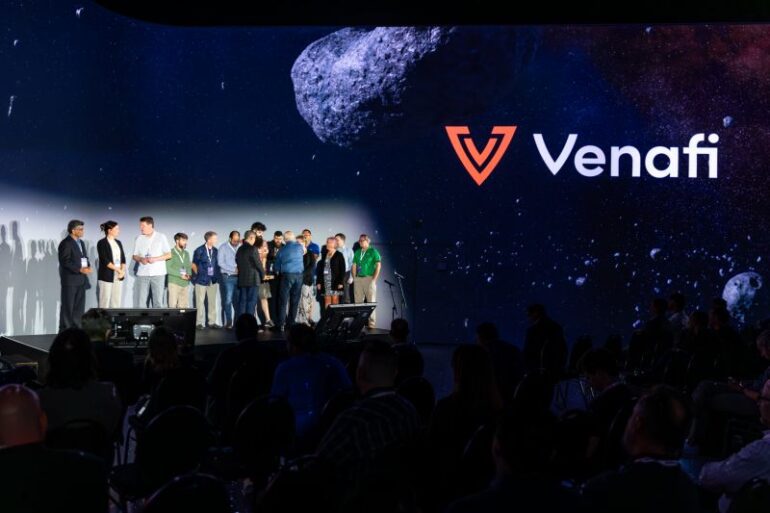TL;DR:
- Venafi introduces Athena, powered by a Large Language Model (LLM), for streamlined machine identity management.
- Athena offers a natural language interface and automated code generation for integrations.
- It addresses the challenge of managing machine identities in virtualized environments.
- Athena is available at no extra cost and is open source, fostering community collaboration.
- The LLM in Athena is extensively trained, minimizing errors and offering expertise in infrastructure as code.
- Athena simplifies operations by generating comprehensive code recipes for developers.
- It aids identity professionals in managing complex, ephemeral systems in modern IT and cloud environments.
- Venafi contributes to the open-source community, offering innovative AI capabilities and machine identity data.
Main AI News:
In the realm of modern cybersecurity, where the proliferation of machine identities has become a formidable challenge due to the virtualization revolution, Venafi emerges as a beacon of innovation. Venafi’s latest endeavor, Athena, underpinned by a cutting-edge Large Language Model (LLM), redefines the landscape by providing users with a seamless natural language interface and empowering developers with automated code generation capabilities for critical integrations.
As security professionals grapple with the daunting task of managing an ever-expanding universe of machine identities, Venafi’s strategic adoption of generative AI promises a swift and efficient resolution to these intricate challenges. Athena, the brainchild of Venafi, introduces a remarkable transformation by incorporating a Large Language Model (LLM) layer into its renowned SaaS offering, now christened “Venafi Athena.” This ingenious upgrade facilitates user interaction through a chat interface, as confirmed by Kevin Bocek, the company’s Vice President for Ecosystem and Community.
Notably, Venafi Athena, available to users at no additional cost, extends its benevolence to the open-source community, with its code now accessible on Hugging Face for community-driven projects, according to Bocek. Jack Poller, Senior Analyst at Enterprise Strategy Group, emphasizes the significance of Venafi’s Athena in enhancing operational efficiency amidst the challenging economic climate. He notes, “Venafi’s Athena empowers identity professionals to optimize their workflows through a natural language interface, a critical imperative as IT teams are tasked with accomplishing more with fewer resources.”
Athena’s LLM stands as a testament to Venafi’s commitment to excellence. It underwent rigorous training and testing, leveraging Venafi’s proprietary data along with insights gleaned from multiple external LLMs, including models available as-a-service and open source. Fine-tuned with Venafi’s extensive machine identity knowledge, Athena exhibits a profound understanding of infrastructure as code (IaC) tools such as Ansible and Terraform. This expertise ensures that the software remains impervious to the pitfalls of generative AI systems, preventing the dissemination of erroneous information concerning virtual machine identity and management, according to Pollard.
Athena’s brilliance lies in its capacity to automate code generation and streamline operations. Venafi proudly claims that Athena harnesses the power of generative AI to simplify machine identity operations by generating and proposing comprehensive code recipes. As Kevin Bocek elucidates, “Code recipes are fully-fledged and deployable integrations that developers can readily employ.” Venafi’s repository boasts pre-built code recipes designed to address complex issues, such as ‘importing from ServiceNow to Venafi in Python’ or ‘retiring certificates from inventory in Python’ via Venafi Dev Central.
In practice, when engineers seek to integrate the Venafi control plane with other services or technologies, they articulate their requirements and desired outcomes to Athena. In response, Athena orchestrates the development of a Venafi connector, ready for seamless deployment.
Jack Poller underscores the relevance of Athena in the context of modern IT and cloud environments, particularly in managing the identities of ephemeral, transient systems. He notes that identity professionals, often unfamiliar with coding or IaC environments, can leverage Venafi’s Athena for Developers LLM to effortlessly craft the necessary code for overseeing complex environments.
Athena’s debut further amplifies Venafi’s contributions to the open-source development community. It serves as an experimental playground, offering developers early access to innovative generative AI capabilities and invaluable machine identity data for crafting pioneering features. Additionally, data scientists gain access to datasets rooted in Venafi Athena’s knowledge, thereby unlocking new possibilities in the realm of machine learning. Venafi, through Athena, continues to push the boundaries of what is achievable in the dynamic landscape of machine identity management.
Conclusion:
Venafi’s introduction of Athena, powered by generative AI, signifies a significant leap in the field of machine identity management. This innovative solution addresses the complexities of managing machine identities in virtualized environments, offering a natural language interface and automated code generation. With its open-source availability and extensive training, Athena is poised to enhance operational efficiency and foster collaboration within the industry. This development highlights the growing importance of AI-driven solutions in the market, as organizations seek more efficient and agile approaches to cybersecurity challenges.

